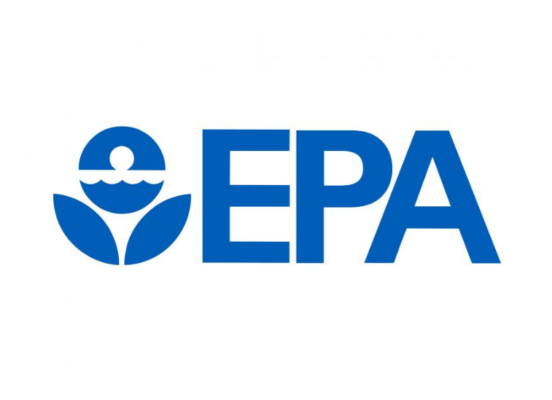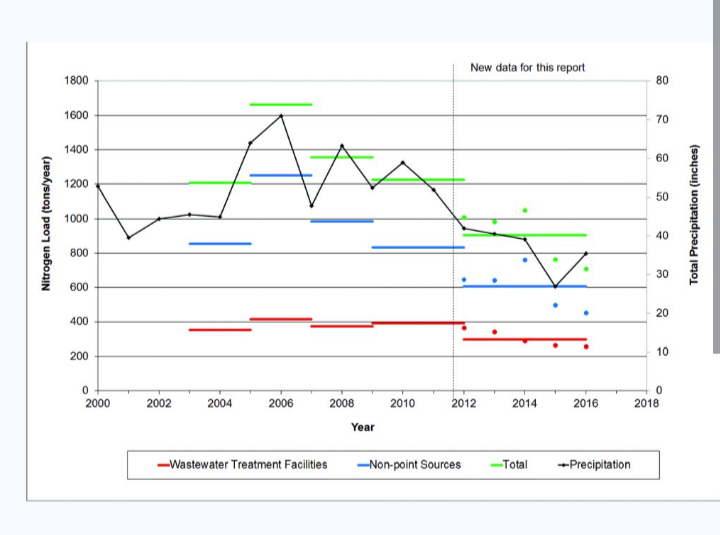Going back to 2017, there was a Senate Bill (SB121) that created a Study Commission, chaired by Senator Jeb Bradley, to look at having NH assume responsibility for portions of the federal Clean Water Act. If it had occurred, this would have removed regulatory authority from EPA Region I and bestowed it to NH DES Staff in Concord.
An unsigned copy of the SB 121 Report (copy attached). From that SB 121 Report, there was another effort, SB450 – that created a Study Commission on the topic. And while that made some headway, nothing ever came to fruition as it had a fiscal impact of $350,000 for funding – and the effort waned.
On 1/8/2024 a new bill was presented to start the conversation on the EPAs role in NH – HB1294
The bill sponsor, Michael Granger of Milton, admits the bill will need study and an amendment, but with all the recent overreach from the EPA, it is necessary for NH to revisit. This bill with put our own NHDES in charge and not the EPA. There are a lot of monies that come from the EPA, but if we look closely enough, it will offset the cost of each town’s expenses on regulations and impacts they require. We need a study commission to investigate this bill.
The EPAs overreach, without cause or proof, to stranglehold NH people, businesses, and natural resources without science to back up their claims, just assumptions. There are not enough words to get into all the details. The internet links involved in this effort, which include dozens more links, are the culmination of years of posturing from NH towns to appease the EPA. The focus here is on farming, but many other professions, people, and natural resources are at risk from the EPA.
We want to thank Anonymous for this Contribution – Please direct yours to Steve@GraniteGrok.com.
You can review our ‘Op-Ed Guidelines‘ on the FAQ Page.
Farming, big and small, has always been the NH way. The lands have flourished with food and livestock to feed us through time, yet the EPA has only been around for 50 years. While farmers are trying to keep NH’s natural resources, the EPA comes along and does the opposite. UNH extension has spent over 100 years developing best management practices for the best yield and the ecosystem for farmers to coexist with the land. After all, why would farmers want to destroy the lands and water they depend on? One of those is buffer zones for wetlands, to filter possible contaminates into runoff. The environmental area of UNH is telling us to take nitrogen from the land, and the extension is telling us to put it back in the soil.
No one wants dirty water or dirty air, no one. So why has the government become so blinded by this special interest project they can’t see the forest through the trees! Since when can large corporations get permits to drain and fill NH wetlands overnight, and the people get the shaft for having large impervious surfaces, pole barns, and driveways?? The EPA has become an arm of big government to do the bidding of lobbyists. So, when it comes to the actual environment, they failed the land and the people of NH. How can someone in DC or even Boston possibly have a clue what lands and water in NH need by sitting at a desk looking at satellite imagery from UNH environmentalists that tell only half-truths about the land? They show no BMPs utilized or even a homeowner using a rain barrel. And why is the EPA spending so much of our money on guns and combat equipment? https://mustreadalaska.com/armed-and-dangerous-epa-spends-millions-on-combat-equipment/
Dover just put to rest, for now, the first in the state “rain tax,” aka stormwater utility. This effort was forced upon taxpayers to appease the Municipal Alliance for Adaptive Management (MAAM) /EPA/CLF contract dated 3/21 with Portsmouth Dover and Rochester.
The city basically tried to enact a restrictive, unjustified burden upon property owners in an effort to help pay for costs associated with the EPA contract and the shortfall in the city budget (-3m) for sewer due to overdevelopment. The impact on small homes was minimal, but to farms, apartments, businesses, and nonprofits, it was in the tens of thousands per year. The “tax” was going to double tax square footage and include impervious surfaces. Even nonprofits were not exempt. In fact, the only exemption was the state highways.
It died because it was done clandestinely. No one believed it; no one seemed to pay attention until the day before the vote when people woke up and showed up, schooled the city council in ways of notice, illegal taxation, unfair practice, and more. The mayor and several city council members agonized and then voted 6-3 to kill the tax.
There was so much wrong with this effort that it would be a nightmare for property owners, renters, businesses, open spaces, and farms. Several of the items on the EPA’s list are for those on septic systems to replace them with nitrogen-free systems, yet the state NHDES has not approved such a system! The link to all seacoast towns and each land impact is on the list of links. The “tax” is dead, but the EPA contract is still active. This is an overreach that the Dover Meeting on Stormwater voted down on 12/13/23. Listen to the public comments and the apologies from the mayor!
The EPA wants the city of Dover to pay $20 million for a new wastewater treatment plant, and they don’t know if it will work to reduce nitrogen in Great Bay!? The effort the city has made to nearly eliminate nitrates at the wastewater treatment plant from discharge into the rivers is about 90%. Yet the EPA is demanding a 20m new plant! They don’t even know if nitrogen is the issue! If the monies from EPA to state agencies are a factor, just think of all the property tax dollars spent on their ridiculous demands! It will only get worse.
The EPA’s latest pet project is “nitrogen.” Like CO2, The EPA is going after nitrogen, which is one of the basic elements of growing food. The EPA claims it is causing problems in Great Bay. In 2006, see chart, there was a 100-year flood on Mother’s Day (See photos). This massive flood caused the wastewater treatment plants along all the rivers in the seacoast to overflow effluent into Great Bay. Since then, NHDES has worked with towns to mitigate the plants so it does not happen again. You can see on the chart from NHDES (below) the spike.
Since testing started in 2000-2016, the nitrogen levels have righted themselves, as what happens in a fast-moving tidal river. According to the EPA, it isn’t enough. There have been zero studies to determine what is causing eel grass in the bay to decline. Not one study had been done to determine if it is, in fact, nitrogen or something else entirely or maybe it’s the natural life cycle of eelgrass. Not only eel grass, but the EPA is telling people in Milton it’s snails. They don’t even know or care.
So, let’s call it nitrogen, and all the EPA and environmentalists will be happy. Wrong. This issue is far more compelling. I’ve asked the powers to be at all the agencies what if the nitrogen tanks go too low to support life in the bay and kill the bay. No one knows or has a failsafe to ensure this doesn’t happen! Checks and balances! The city of Dover and MAAM are going to actually start studying why to try and find answers, but the EPA won’t stop or wait.
Great Bay is an amazing resource. There’s also Little Bay. Both are fast-moving tidal saltwater bodies. The 60s and prior saw sewerage dumped into the rivers and bay, thankfully stopped through local pressure. An oil spill in the 70s was when a tanker in Newington leaked its cargo into the bay and was swept into the rivers upstream. The 2006 Mother’s Day flood. The point is, throughout time, the bay has corrected itself, fact. We should not down play importance of responsible stewardship, quite the opposite! We want assurances all these programs will work, why and how to prevent a worse crisis. That is what all of us should demand before we have to start dumping nitrogen back into the bay.
Farmers have maintained a healthy balance with nature. They know how the land works and how to make the land prosper and wildlife flourish efficiently. Rural character, large and small farms were encouraged, and now farms are the newest EPA punching bag! Several farm properties have been tested after a large summer rain storm and zero excess nitrogen. Yet, they would have to pay a penalty for what exactly? Where/what is the EPA doing?
Let’s talk about eelgrass. According to the authorities, eelgrass is declining. Frankly, I do not recall eel grass in most of the bay. Some of the things listed to its decline are humans, changing conditions, runoff of wastewater, etc., so EPA and others go after the wastewater treatment plants, but are not absolutely sure they are the cause!
If effluent is a factor in the health of the bay, then why do boats dump raw sewage in the bay? Why are golf courses and beautiful lawns exempt? Why is waterfront development allowed at all? Why are lawns allowed to add harmful pesticides that live on the bay? So many questions and no one will answer. For hundreds of years, farms are the caretakers of the land, yet some suit in Boston will take this away.
Huge corporations get drain and fill permits on our dwindling wetlands, changing NH with help from the EPA. Large landowners will succumb to the pressures or expenses and sell to large corporations for development. Does anyone believe all their programs will retain the natural resources or keep open space and farms? Our children’s children deserve the natural resources NH has in every town, not just state parks. We’ve done a crap job compared to other states. Getting the NHDES in control without the overhanded EPA is a start. Maybe we can heal what’s left of our lands.
Timelines:
Prior to this, Native Americans farmed these lands
First colonies 1640
NH 1776
UNH, 1866, as agriculture and mechanical arts
Extension, est. 1917 to bring education to the public land grant university
EPA, 1970
We need better studies before jumping into possible irreversible programs. Having our own NHDES in control of NH natural resources is a start. We must be careful before we proceed.






